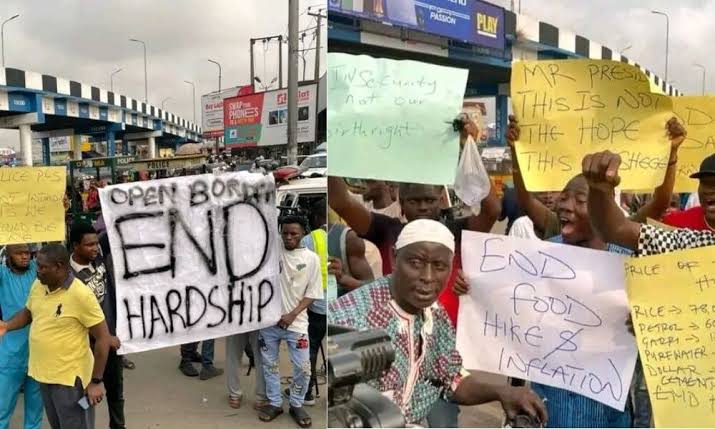SONALA OLUMHENSE FROM PUNCH
I published my first observations on the political party now known as the All Progressives Congress (APC), 11 years ago, titled, “Welcoming the APC.”
Ten years later, I found myself warning Nigerians: “To Vote APC In 2023, You Must First Hate Yourself (1) and, “To Vote APC In 2023, You Must First Hate Yourself (II)”.
“Nigeria’s sinners are not only in the PDP,” I said in that introductory piece in 2013, nearly two and a half years before one Muhammadu Buhari of Daura arrived in Aso Rock. “The PDP has become the symbol of Nigeria’s decay only because of its carnage in the center, but none of the parties that have held power in the States in the past 14 years are innocent.
“In other words, the real issue is not the PDP; it is the Nigerian politician. The question is whether the Nigerian politician of the APC is different, or will be.”
I stressed that the task at hand was not simply to remove the PDP from power, as much as Nigerians desired that.
“…It is putting in, and putting first, Nigeria. To do that, the APC must demonstrate the capacity, not just the rhetoric, for democracy. It is an age-old challenge: many proclaim it, but few are strong enough to understand its implications.”
Said an APC official at the launching, “We resolve to form a political party committed to the principles of internal democracy, focused on serious issues of concern to our people, determined to bring corruption and insecurity to an end, determined to grow our economy and create jobs in their millions through education, housing, agriculture, industrial growth etc, and stop the increasing mood of despair and hopelessness among our people.”
I described those priorities, expressed even more broadly elsewhere, as “an overloaded shopping basket,” and wondered if the new party had “the political and patriotic capital to pay for it.”
I recommended that the party establish“clear standards and demonstrate that those standards are higher than partisan politics and the APC itself.”
I challenged the party to show good faith by setting and publishing “a code of conduct and of obligations” to demonstrate that it understood the challenge and would subordinate itself to it.
Read, then, the APC Manifesto of 2015. Not only did the party betray all who believed it and voted for it, it proved to be so inferior to the PDP that it owes that party an apology.
To be fair, in the intervening years it quickly became clear that the two parties are really the same. Among many others: in July 2016 I decried its revisionist nature, and just months later, the fall of the party and its chameleon of a leader. Early in 2018, I called the bi-party partythe APDPC.
If you are a Nigerian of any creed or cudgel, and you are currently worried about whether there is a future for Nigeria, remember that just eight years after it came to power, APC was requiring blood transfusion.
That transition was called “Renewed Hope,” with an Action Plan exactly twice as long as the party manifesto. Curiously, the new plan appears to be collapsing more than twice as fast, Nigeria plunging into deeper darkness and despair in a matter of months.
Because you cannot find an answer unless you understand the problem, we must be careful.
In 2013, we stressed that APC would be held to a higher standard than the PDP because it had proclaimed itself to be the superior, asking whether APC was merely opportunism. “Let the new party define its character by publicly setting the lowest limits of its aspirations at the level of the most essential reforms that Nigeria needs,” I urged.
APC did not. It chose to travel as an unprincipled bunch of pirates, replacing effort and character with propaganda and outright lies. In none of its cardinal programmes was it ever close to success; in none of them did it ever offer the truth.


